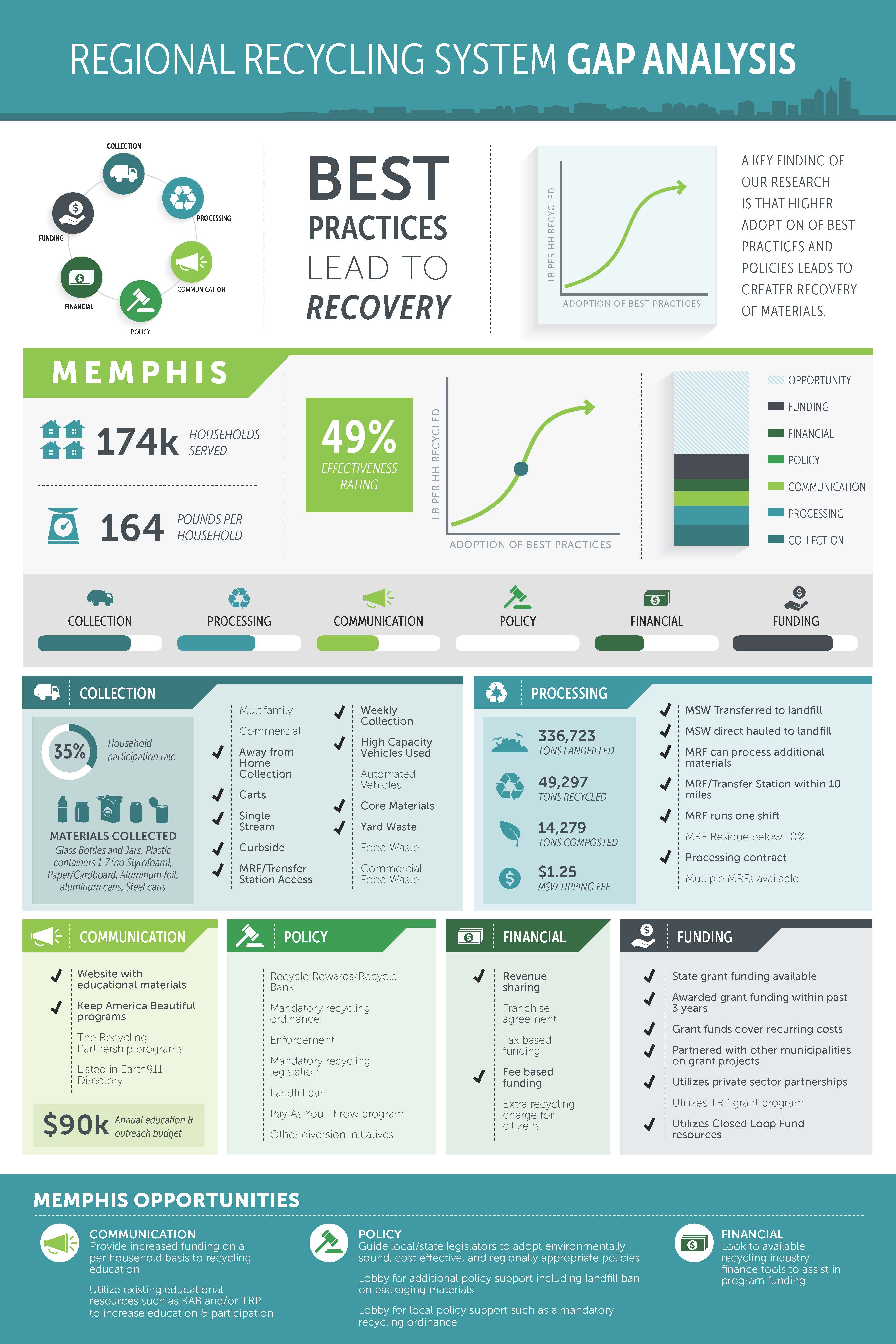Mind the Gap
One of the things that makes America great is the diversity across our communities. On this topic, think about recycling for a second. How do you recycle where you live? Now think about your neighboring community, or a city you’ve visited on vacation. How does recycling work there? Chances are your programs work differently.
With the constant cry of “increased diversion” and “more/better access” to recycling, a big question is how? With all this diversity, what action can any community take to improve recycling performance? Where’s the best place to start?
Let’s take a look at what the Memphis, Tenn. region recently did to address those exact questions.
First, why Tennessee? RRS estimated that more than $180 million of valuable recycled materials are disposed of annually in the state. In addition, many manufacturers have zero waste policies and the state has new recycling planning requirements. All solid drivers for better understanding the gap between the current state of recycling and best practices.
 The Coalition to Advance Recovery in Tennessee (CART) had goals to increase recycling access to improve materials recovery in key metropolitan areas within the state, and to raise awareness of the economic value of strong recycling programs among state and local leaders. CART was a public-private collaboration that included Tetra Pak, Kimberly-Clark, ReCommunity, General Motors, Veolia, and the Tennessee Department of Environment and Conservation (TDEC).
The Coalition to Advance Recovery in Tennessee (CART) had goals to increase recycling access to improve materials recovery in key metropolitan areas within the state, and to raise awareness of the economic value of strong recycling programs among state and local leaders. CART was a public-private collaboration that included Tetra Pak, Kimberly-Clark, ReCommunity, General Motors, Veolia, and the Tennessee Department of Environment and Conservation (TDEC).
The CART effort included a recycling gap analysis that collected data across municipalities in the region on six best practice areas: collection, processing, communication, policy, financing, and partnership. The data gathered presents a way to measure uptake of recycling best practices and benchmarks performance for municipalities and counties in the region. It also provides clear opportunities to develop hub and spoke recycling systems in this city region.
The analysis identified several areas of potential improvement:
- Explore program financing options including available recycling industry finance tools.
- Increase education funding and messaging.
- Look to policy support at the state and local levels.
Joe Nunes, neighborhood services manager for Germantown, Tenn. and Shelby County regional solid waste planning board chair said, “The gap analysis process was very useful to help identify opportunities for improvement in our recycling program through benchmarking best practices in other municipalities, and provided insight into the success of our program on key performance metrics.”
A recycling gap analysis can be applied to individual communities or regionally to better understand the opportunities for investment and how to direct that investment based on local data. Increasing material recovery in regions across the US to the national average and beyond will further the interests of both the public and private sectors. It will produce thousands of processing and manufacturing jobs and build upon an existing, steady base of recovery infrastructure. Local industries are hungry for the additional feedstock and it makes sound business sense to use local materials.
View the Memphis Region Recycling Gap Analysis report.

